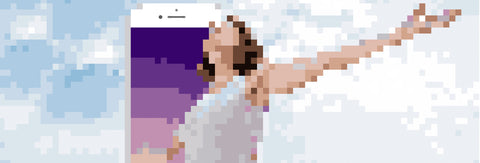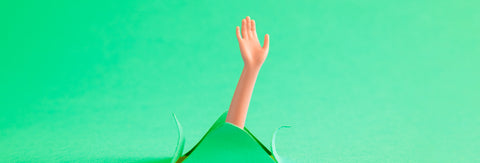The digital age has opened a world of possibilities to society and its advancement. From medical solutions to a renewed sense of community, it seems there is very little that can’t be accomplished through a few clicks of the cursor or taps on the screen. But as goes the adage, all good things in moderation.
Why consider a digital detox
Canadians are reportedly spending an average of 5 hours on their phone a day. What may be more surprising are the numerous studies proving psychological afflictions that come in tow. A breeding ground for conditions like sadness, anxiety and depression, prolonged exposure to digital media is taking a toll our mental health. But, in an age where we feel we must be connected, it can be hardly acceptable to unplug. The good news is, you can!
The science behind it
To start, you should know that it isn’t the amount of time spent on the internet that is the issue, but how the time is being used. Linked to areas of the pre-frontal brain, digital consumption has an impact on the prioritization function of the brain associated with recalling details, planning and attention overall. The impact here is that sooner or later, subconscious or not, the internet takes first place on your list of tasks and to-dos.
You should also know that internet addiction has a similar effect on the brain as chemical substances. This all happens in your pleasure centres, and once it has felt a “high” (like seeing your phone light up with a message notification), you’ll be driven to consume more. And so, the cycle begins…
The benefits of going off-screen
Aside from all the reasons why you should, going screen-free can have some real benefits. While most of us might get off to a slow
Your memory and concentration to improve
Keeping your phone around means a literal distraction at arm’s reach. Taking a break means you’ll be able to retrain your brain against this, allowing you to devote more concentration to tasks at hand. That way, the productivity part comes (more) naturally.
You’ll make deeper connections
In one study, strangers were paired together and sat at a table with either a notepad or a cell phone. At the end of the study, participants were asked to rate their interaction. Unsurprisingly, the ones who were sat with a cell phone (whether used or not), scored lower. This means that even the presence of a cell phone diminishes the quality of connection. Taking a break from your timeline means you can put your energy where it counts: with the people you care for.
You’ll generally be happier
Some doctors have gone as far as “prescribing” detoxes from social media to those with anxiety and depression. As a result, many experienced lightened moods and a cheerier disposition overall!
You’ll sleep better
The effect of blue light is no joke! Research has shown that the presence of blue light reduces melatonin production, placing a hindrance on how much, and how well, you sleep. Crossing your phone out of your routine means you’ll instantly up your bedtime quality.
Digital detox how-to
Now that we’ve outlined the science behind it, here are a few ways that you can break free. Bill it under “self-care”, even if it’s just for a little bit.
- Be weary of busy bragging
Research has shown that productivity dwindles throughout the day, with numbers fluctuating depending on disciplines and lines of work. In fact, it’s been said that rotation workers experience this after a 40-hr work week, and creatives after only 20 hrs. So how does this explain how often we check our phones because “duty calls”? A cultural phenomenon, busy bragging has become a way we show others we are successful. Being “busy” often means we don’t have to make any new decisions or take the time to pursue things that will really make us happy. This also means we might pick up our phones a few more times in a day than may be necessary. Keep an eye on your phone’s “screen time” tab. It’ll give you an idea of how many times you’ve done this, and you’ll know whether it’s been gratifying or gratuitous. - Be conscious of distractions
When you focus on what really matters, you’ll find you make better use of your time. Try removing notifications or using your DND function after a certain time of day.
- Buy an alarm clock
One common excuse for having your phone bedside is the fact that it wakes you up in the morning. This leaves the door wide open for pre-sleep consumption, which is not only bad on the blue light front but can risk leading you into a 4 a.m timeline tunnel you’ll be paying for tomorrow. For your best chance at taking on the day, buy an alarm clock. - Turn your FOMO into IRL moments
Close your eyes and think about your favourite things to engage with online and how you could implement them into your actual life. If you ask us, experiencing things IRL beats hunching over a screen any day.
No matter how you slice it, the web is an essential tool to modern living. Make sure to take time to disconnect to reconnect because, sometimes, a break from today is exactly what you need to prepare for tomorrow.
References
- Luskin, B. J. (2012, March 29). Brain, Behavior, and Media. Retrieved from https://www.psychologytoday.com/ca/blog/the-media-psychology-effect/201203/brain-behavior-and-media
- WhiteKnight, ND, H. (2016, June 5). The Effects of Digital Media Use on Early Childhood Brain Development and Self-Regulation. Retrieved from https://kihc.ca/the-effects-of-digital-media-use-on-early-childhood-brain-development-and-self-regulation/
- Report: 46% of Canadians admit to using a phone in the washroom. Retrieved from https://cira.ca/resources/corporate/factbook/canadas-internet-factbook-2019
- Harvard Health Publishing. (n.d.). Blue light has a dark side. Retrieved from https://www.health.harvard.edu/staying-healthy/blue-light-has-a-dark-side




